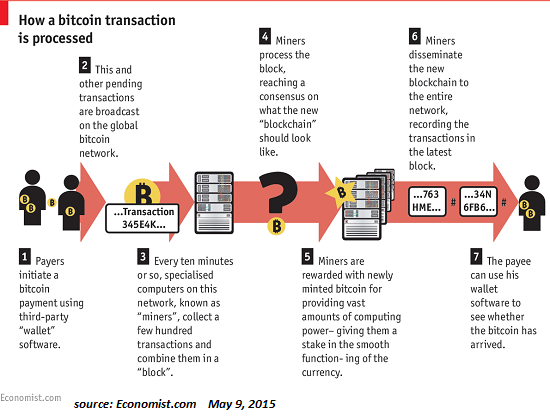
This article was written by Charles Hugh Smith and originally published at his Of Two Minds blog.
Editor’s Comment: The war on cash is ongoing, and destructive to personal wealth and independence. So it comes as no surprise that the same insider interests who manipulate the currency, and are ushering in the cashless digital control grid are also moving to derail or even destroy independent digital currencies as well.
BitCoin and other cryptocurrencies have demonstrated the power of the market and individual even in the online and digital society that is otherwise based on tracking, monitoring and biometrics. How could those who crave power over society possibly let it go without a challenge? Will free people find a way around it in the cyber world of the future? The answer is a hopeful probably-yes… but it won’t be easy.
The Future of Money
by Charles Hugh Smith
The cartels and state organs are frantically trying to co-opt, outlaw, corral or control this disruptive technology.
To say that the future of money is blockchain-based crypto-currencies and payment platforms is to state the obvious nowadays. If this wasn’t the case, then why are Goldman Sachs et al. (i.e. the global too big to fail banks) rushing to patent their own proprietary versions of blockchain technologies? Why are banks investing heavily in companies that are trying to establish a global blockchain platform for banks?
The reason is that banks understand their core reason to exist is threatened by peer-to-peer, decentralized payment platforms and currencies. If payments no longer need to be routed through a centralized trusted institution, then one core function of banks disappears.
If peer-to-peer lending and securitization becomes easier and cheaper due to the blockchain, then banks’ function of allocating capital also vanishes.
Gordon White and I discuss The Future of Money (and its connection to meaningful work) (1:11 hrs; be forewarned we cover a wealth of topics, from philosophy to higher education to gardening to creating value in an economy that is being disrupted.)
Since money–currency that serves as a medium of exchange–no longer needs to be issued by central banks/states, central banks/states are also in danger of being mooted/bypassed as enterprises and people realize they can escape the relentless destruction of their purchasing power by inflation-seeking central banks/states.
If you aren’t familiar with blockchain technologies and crypto-currencies, and how these innovations are disrupting centralized banking and state-issued currencies, here are a few articles to start with:
Why Wall Street Is Embracing the Blockchain—Its Biggest Threat
“The premise of the Bitcoin platform—a decentralized, trustless, replicated ledger of transactions—is the virtual opposite of the centralized, trusted, guarded, model of modern securities processing, which has long relied upon DTCC, among others, as a central authority,” reads a treatise the organization released alongside that canned quote from its CEO. In other words, the DTCC realizes that it’s embracing an existential threat.
Forget How Blockchain Works, Talk About What It Does
Blockchain: The next big thing (or is it?) (5/9/15)
All that is needed, blockchain boosters argue, is a “killer app” to find a use for the breakthrough, in the same way that web browsers made the internet useful. Some still think that a currency is the most promising application, but plenty of engineers are throwing other ideas against the wall to see what sticks.
Bitcoin Blockchain Technology In Financial Services: How The Disruption Will Play Out
“For an entire industry to be focused on a new technology within three years [of it being known beyond the initial core of enthusiasts] without it actually even disrupting them even 1% yet is an interesting reality,” says Chain.com CEO Adam Ludwin. For instance, he notes that in 2000 the recording companies’ reaction to Napster was not to invest in digital models but instead to sink money into lawsuits.

Nobody can predict precisely how blockchain technologies will disrupt centralized banking and currencies, but we can predict the blockchain will disrupt the current cartel-state arrangement that benefits the few at the expense of the many.
The cartels and state organs are frantically trying to co-opt, outlaw, corral or control this disruptive technology. Here’s an analogy: North Korea has managed to co-opt, outlaw, corral or control the Internet, and how prosperous and productive is North Korea?
We cannot let the banks and central banks/states co-opt, outlaw, corral or control blockchain technologies. If they “win,” our economy will stagnate and the slide to complete implosion will be unstoppable.
The Future of Money (podcast, 1:11 hrs, with host Gordon White)
——
Charles Hugh Smith is an economic expert and author who offers insights at his Of Two Minds Blog. Please visit and support his work there.






0 Comments